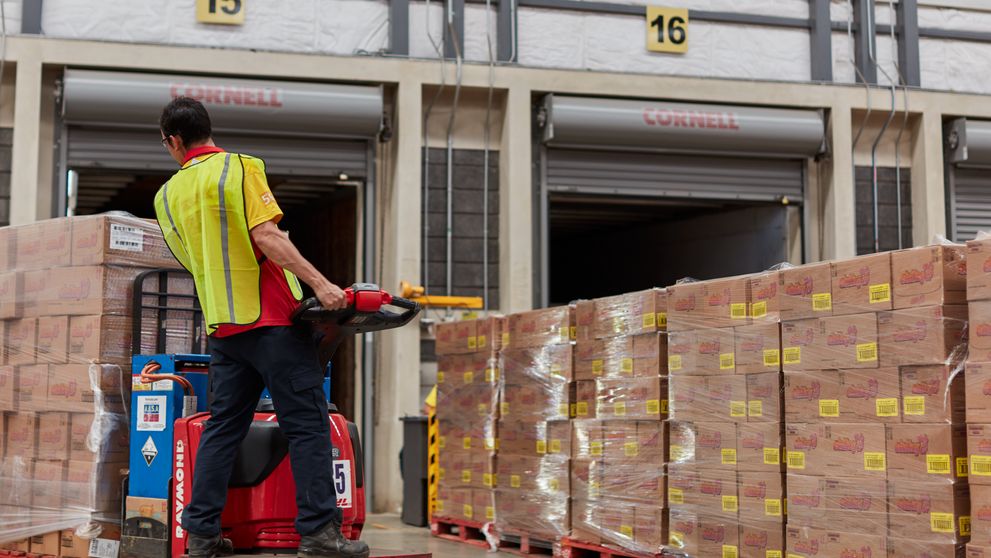
Thailand is more than just a tourist paradise; it is a goldmine for cosmetics and beauty supplement businesses. Small and medium-sized enterprises (SMEs) and customer-to-customer (C2C) traders are taking centre stage, propelling Thai beauty products onto the global stage. But the path to worldwide success is not just about having a great product – but also mastering the art and science of cheap but effective overseas shipping.
An overview of Thailand’s top cosmetics and beauty exports
Leading the beauty battalion is collagen, revered for its promise of youthful vitality. From rejuvenating skin to strengthening hair and nails, collagen-based products are gaining popularity, making them a top export from Thailand. Whether it is in the form of creams, serums, or ingestible powders, collagen is a prized export, a testament to Thailand's innovative approach to beauty.
Another noteworthy export is the array of whitening products. These products, infused with ingredients like Gluta-C, are designed to enhance skin luminosity and even out skin tone. From lotions and creams to soaps and serums, Thai whitening products are renowned for their effectiveness and quality, garnering a substantial international customer base.
Thailand is also renowned for its range of beauty supplements. These products, often packed with antioxidants, vitamins, and minerals, offer a holistic approach to skincare, addressing beauty from the inside out. Their popularity extends beyond Thailand's borders, making them a hot commodity in the international market.
These treasured exports, along with a host of other cosmetics and personal care products, are the driving forces behind Thailand's burgeoning beauty industry.
International shipping guidelines
Shipping these products from Thailand to international markets is not as simple as packing a box and sending it off. There are specific guidelines and requirements that must be met, especially concerning the FDA (Food and Drug Administration).
1. FDA requirements
For products like dietary supplements and cosmetics, securing FDA approval is crucial before you can ship your products internationally. These requirements vary depending on the product, but generally include a thorough review of the ingredients, manufacturing process, and safety of the product. For instance, Collagen and Gluta-C whitening products – popular in Thailand – must meet specific FDA standards before they can be exported.
2. Documentation
In addition to FDA approval, certain documents are necessary for shipping these products. These may include commercial invoices, packing lists, and proof of FDA approval.
3. Taxes and duties
Another critical component of international shipping involves the accurate understanding and application of Harmonised System (HS) codes to your products. These codes play a pivotal role in determining the taxes and duties that are required for exporting goods. In addition, if you are shipping within the ASEAN region, understanding the benefits of the ASEAN Free Trade Area (AFTA) can help to reduce or eliminate certain tariffs. It is essential to correctly classify your goods using these systems to ensure smooth customs procedures and avoid unnecessary costs.
4. Packaging
Ensuring your products are securely packaged is another vital step in the shipping process. Proper packaging protects your products during transit and ensures they reach their destination in perfect condition. For instance, food and oral supplement products such as dietary drinks or vitamins require specific packaging standards. They should be sealed properly to prevent any leakage or contamination.
Furthermore, keeping an eye on international shipping rates can ensure you are offering the most competitive prices to your customers.
Mistakes when shipping cosmetics and beauty products
Avoiding common shipping mistakes can save you time and money. Here are some common issues:
1. Incorrect FDA documents
One of the leading causes of shipping delays is incorrect or incomplete FDA documentation. Ensure you have all the necessary FDA approvals and that all documentation is correct and up-to-date.
2. Inaccurate product descriptions
A precise product description is essential for smooth shipping. An inaccurate or vague description can lead to your shipment being held up at customs.
3. Declaring wrong values
Declaring incorrect values for your products can result in penalties and delays. Always provide accurate information about the value of the goods you are shipping.
4. Ignoring destination country requirements
Different countries have different regulations when it comes to importing cosmetics and dietary supplements. Understanding these requirements and ensuring your products comply is essential for successful worldwide shipping.


















